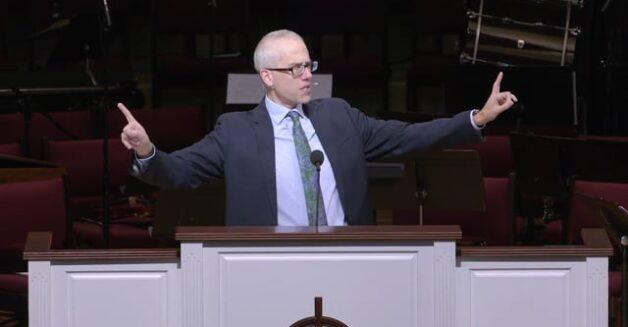Here’s a paragraph from Jonathan Edwards that I’ve been reading and rereading. I think you’ll find it relates to yesterday’s post and, yes, to the Rob Bell controversy (doesn’t everything relate to that?). Let me give you the paragraph and then make a couple comments:
There is a pretended boldness for Christ that arises from no better principle than pride. A man may be forward to expose himself to the dislike of the world, and even to provoke their displeasure, out of pride. For ’tis the nature of spiritual pride to cause men to seek distinction and singularity; and so oftentimes to set themselves at war with those that they call carnal, that they may be more highly exalted among their party. True boldness for Christ is universal and overcomes all, and carries ’em above the displeasure of friends and foes; so that they will forsake all rather than Christ and will rather offend all parties, and be thought meanly of by all, than offend Christ. And that duty tries whether a man is willing to be despised by them that are of his own party, and thought the least worthy to be regarded by them, is a much more proper trial of his boldness for Christ, than his being forward to expose himself to the reproach of opposers. (Religious Affections, 352)
I have two comments.
1. Rob Bell’s danger is our danger too. I believe Bell has changed key Christian doctrines in an effort to be more palatable to those inside and outside the church who can’t stomach traditional Christianity. My hunch is that for all the criticism he’s received, he probably still has lots of folks around him cheering him on. It takes some courage to say something you know will be unpopular. It takes extraordinary courage to say something you know will be unpopular with those you respect most and those who like you best.
I’ve gotten many emails since the Bell review came out. A few have been negative; most have been kinder than I deserve. On the whole, it was not a huge risk to publish my review, because I was almost certain those whom I love and respect the most would support my efforts. Hopefully, this means I have good friends. But I know the moments of real courage in my life have been those that required me to oppose “my side.” Opposing the opposers is one thing. Being bold for Christ when it might alienate your friends is a whole other level of courage. We are all tempted to play to our crowd, which is why we must constantly test everything against God’s word.
2. Meditate on this line: “For ’tis the nature of spiritual pride to cause men to seek distinction and singularity.” I believe this diagnoses one major source of our trouble in the evangelical church. The desire for singularity fuels doctrinal deviation. People want to say something new. In our hipster age, many Christians are wary of any labels. They don’t want to be a part of a movement. They want off the bandwagon if people are jumping on it. They don’t want to agree with what’s already been said. They don’t want to be mainstream.
This is a problem for liberals who are tempted to jettison core doctrines in an effort to distance themselves from their evangelical roots. This is also a problem for conservatives who are tempted to splinter themselves into smaller and smaller groups so they can have the distinction of being the true whatever. Of course, some parts of heritage should be abandoned and some circle-drawing is necessary. But Edwards’ line is a good warning for all of us. It’s all too easy to despise a popular teacher because everyone else likes him, or to get jaded against a particular movement because it’s becoming an institution, or stumble into bad doctrine, or fixate on less important doctrines because all these things give us room for distinction and singularity.
True boldness in Christ champions the truth and walks in the truth, no matter if everyone–or anyone at all–hates that truth, loves that truth, or something in between.



